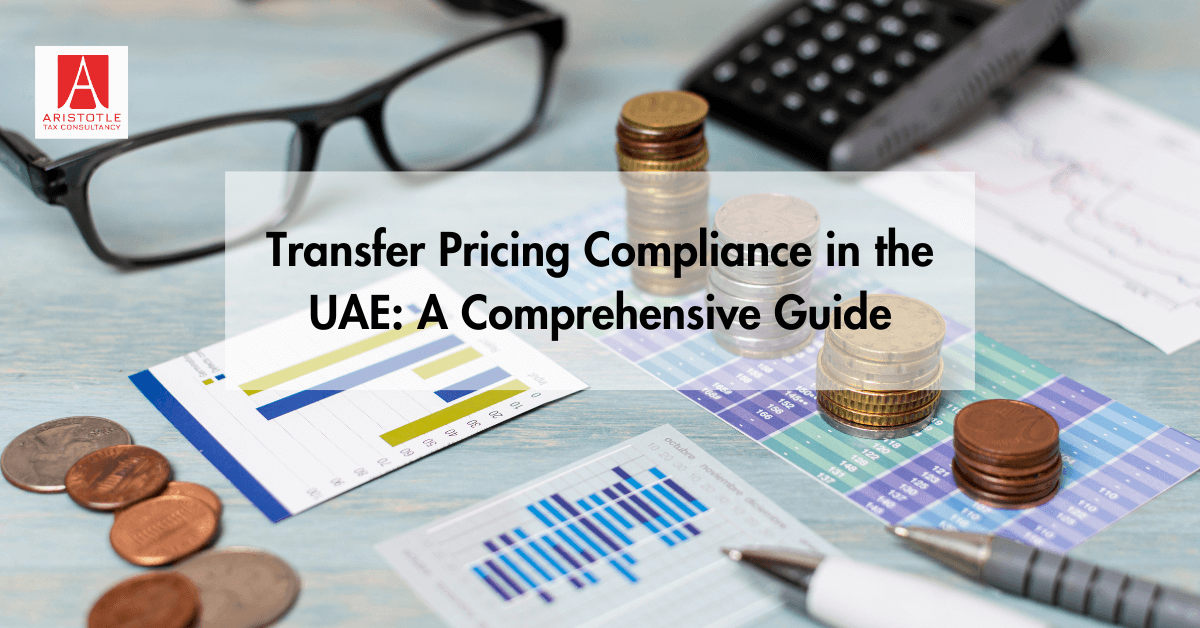Transfer Pricing Compliance in the UAE: A Comprehensive Guide
Introduction: Transfer Pricing Compliance in the UAE
The United Arab Emirates (UAE) has emerged as a global business hub, attracting multinational corporations and expanding its presence in international trade. As businesses conduct cross-border transactions with related parties, transfer pricing has become a critical area of tax compliance in the UAE.
Transfer pricing refers to the pricing of goods, services, intangible assets, and financial transactions between related parties. It ensures that these transactions are conducted at arm’s length, as if they were undertaken between independent parties. This principle is crucial to prevent the artificial shifting of profits to low-tax jurisdictions and to maintain a fair and equitable tax system.
In the UAE, transfer pricing compliance is governed by the Corporate Tax Law, which came into effect on June 1, 2023. The law aligns the UAE’s transfer pricing framework with international standards, including the Organisation for Economic Co-operation and Development (OECD) Transfer Pricing Guidelines.
Importance of Transfer Pricing Compliance in the UAE
Transfer pricing compliance is of paramount importance for businesses operating in the UAE due to several factors:
Tax Compliance Obligations: Businesses are legally obligated to comply with transfer pricing regulations and demonstrate that their cross-border transactions are conducted at arm’s length.
Risk Mitigation: Non-compliance with transfer pricing rules can lead to significant tax penalties, financial adjustments, and reputational damage.
Global Alignment: The UAE’s adoption of international transfer pricing standards ensures consistency with other jurisdictions, facilitating cross-border trade and minimizing tax disputes.
Business Transparency: Proper transfer pricing documentation enhances transparency and demonstrates responsible business practices to investors, regulators, and stakeholders.
Key Aspects of Transfer Pricing Compliance in the UAE
The UAE’s transfer pricing regime encompasses several key aspects:
Related Party Definition: Related parties include entities that control, are controlled by, or are under common control with the taxpayer.
Arm’s Length Principle: Transactions between related parties should be priced as if they were conducted between independent parties.
Transfer Pricing Documentation: Companies with cross-border transactions exceeding AED 375,000 are required to maintain transfer pricing documentation, including a master file and a local file.
Penalties for Non-Compliance: Failure to comply with transfer pricing regulations can result in penalties of up to 100% of the additional tax liability, along with potential criminal sanctions.
Strategies for Effective Transfer Pricing Compliance
Businesses can effectively manage transfer pricing compliance by implementing the following strategies:
Establish a Transfer Pricing Policy: Develop a clear and comprehensive transfer pricing policy that aligns with the UAE’s regulations and international standards.
Conduct Transfer Pricing Studies: Regularly perform transfer pricing studies to determine the arm’s length prices for related-party transactions.
Maintain Transfer Pricing Documentation: Prepare and maintain accurate and up-to-date transfer pricing documentation, including the master file and local file.
Seek Professional Guidance: Engage experienced transfer pricing professionals to assist in complying with the UAE’s regulations and conducting transfer pricing studies.
Aristotle Tax Consultancy: Your Partner in Transfer Pricing Compliance
Aristotle Tax Consultancy is a leading provider of tax advisory services in the UAE, with extensive expertise in transfer pricing compliance. We offer a comprehensive range of services to assist businesses in navigating the complexities of transfer pricing regulations and implementing effective compliance strategies. Our team of experienced professionals can help you:
1. Assess your transfer pricing risks
2. Develop and implement a transfer pricing policy
3. Conduct transfer pricing studies
4. Prepare and maintain transfer pricing documentation
5. Represent you before the Federal Tax Authority (FTA)
With Aristotle Tax Consultancy as your partner, you can ensure that your business is fully compliant with the UAE’s transfer pricing regulations and minimizes the risk of tax disputes. Contact us today to schedule a consultation and discuss your specific transfer pricing needs.


